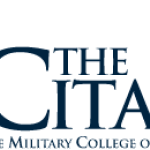- Branża: Education
- Number of terms: 941
- Number of blossaries: 0
- Company Profile:
A figure of speech involving a comparison between unlike things using like, as, or as though. An example: My love is like a red, red rose.
Industry:Literature
The way an author chooses words, arranges them in sentences or in lines of dialogue or verse, and develops ideas and actions with description, imagery, and other literary techniques. See Connotation, Denotation, Diction, Figurative language, Image, Imagery, Irony, Metaphor, Narrator, Point of view, Syntax, and Tone.
Industry:Literature
The sorting out or unraveling of a plot at the end of a play, novel, or story. See Plot.
Industry:Literature
A form of language in which writers and speakers mean exactly what their words denote. See Figurative language, Denotation, and Connotation.
Industry:Literature
A concrete representation of a sense impression, a feeling, or an idea. Imagery refers to the pattern of related details in a work. In some works one image predominates either by recurring throughout the work or by appearing at a critical point in the plot. Often writers use multiple images throughout a work to suggest states of feeling and to convey implications of thought and action
Industry:Literature
The voice and implied speaker of a fictional work, to be distinguished from the actual living author. See Point of view.
Industry:Literature
A figure of speech in which a closely related term is substituted for an object or idea. An example: We have always remained loyal to the crown. See Synecdoche.
Industry:Literature
A comparison between essentially unlike things without an explicitly comparative word such as like or as. An example is "My love is a red, red rose." Compare Simile.
Industry:Literature
A form of language in which writers and speakers mean exactly what their words denote. See Figurative language, Denotation, and Connotation.
Industry:Literature
A contrast or discrepancy between what is said and what is meant or between what happens and what is expected to happen in life and in literature. In verbal irony, characters say the opposite of what they mean. In irony of circumstance or situation, the opposite of what is expected occurs. In dramatic irony, a character speaks in ignorance of a situation or event known to the audience or to the other characters.
Industry:Literature
